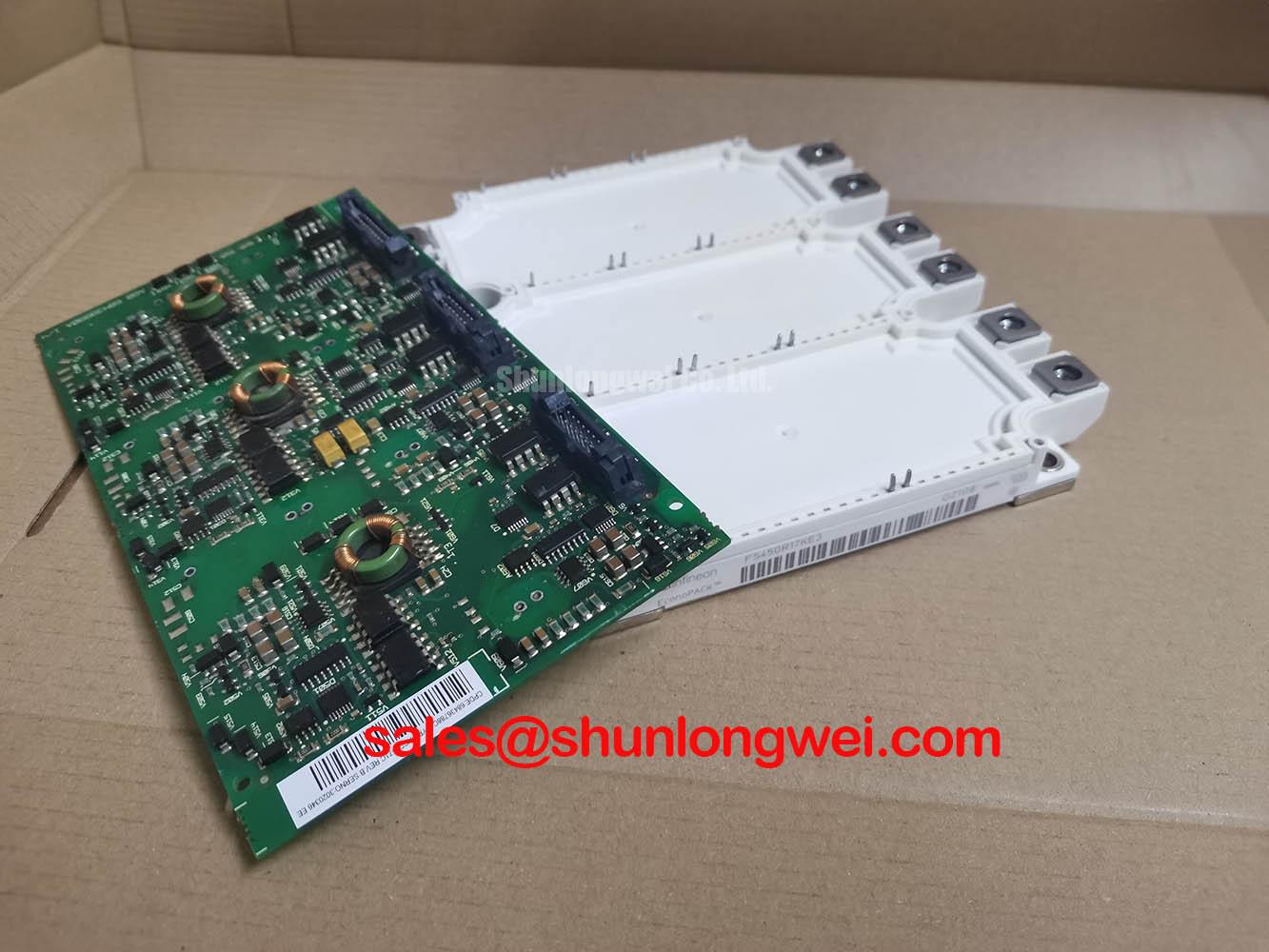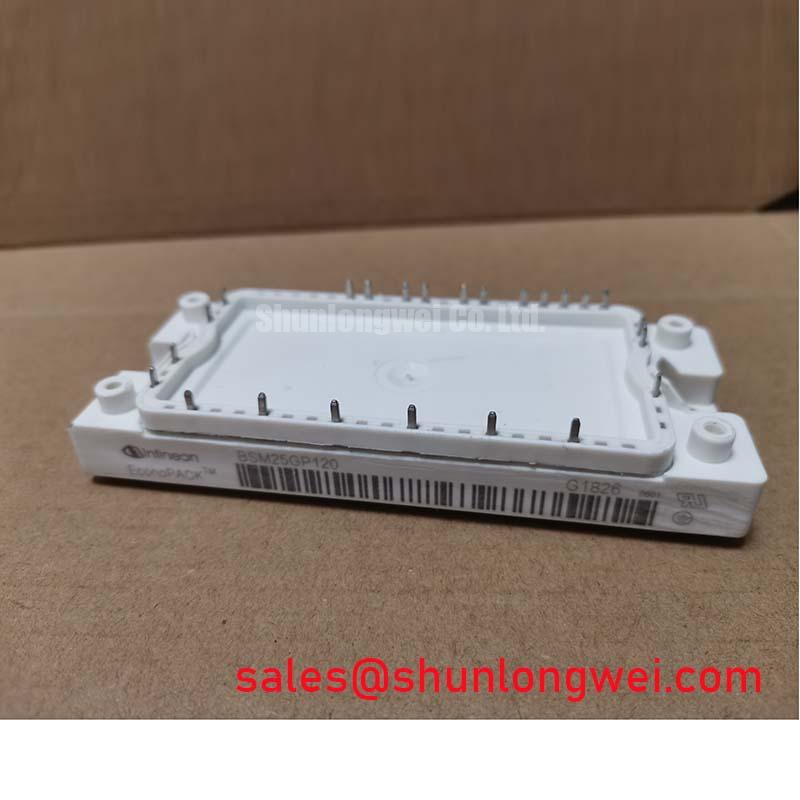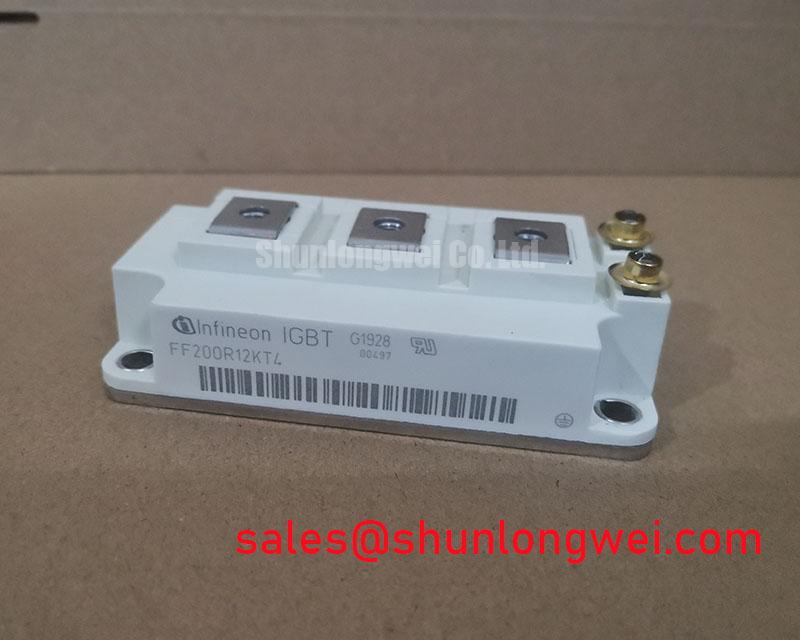Content last revised on January 21, 2026
FS300R17KE4: IGBT Module for High-Reliability Drives
EconoPACK™+ Module for Superior Thermal Performance
The Infineon FS300R17KE4 is an EconoPACK™+ IGBT module engineered for exceptional thermal stability in high-power conversion systems. It delivers a robust solution for designers battling thermal constraints and seeking extended operational life. Key specifications include: 1700V | 300A | Tvj op 150°C. This module provides tangible benefits such as enhanced system longevity and simplified thermal design. Its integrated NTC thermistor and low thermal resistance directly address the critical need for precise temperature monitoring and efficient heat extraction, mitigating a primary failure point in demanding inverter applications.
Key Specifications for Thermal Endurance
The technical parameters of the FS300R17KE4 are foundational to its performance in thermally demanding applications. The following table highlights the specifications most relevant to achieving robust and reliable system operation. These values are extracted from the official manufacturer's datasheet and provide a basis for engineering evaluation.
| Parameter | Value |
|---|---|
| Collector-Emitter Voltage (VCES) | 1700 V |
| Continuous Collector Current @ TC=80°C (IC nom) | 300 A |
| Collector-Emitter Saturation Voltage (VCEsat) @ IC=300A, Tvj=25°C | 2.05 V (typ.) |
| Maximum Operating Junction Temperature (Tvj op) | 150 °C |
| Thermal Resistance, Junction-to-Case (RthJC) per IGBT | 0.066 K/W |
| Short Circuit Withstand Time (tSC) @ VGE ≤ 15V, VCC=1000V, Tvj ≤ 150°C | 10 µs |
For complete electrical and mechanical specifications, please refer to the official FS300R17KE4 datasheet.
Application Arenas Demanding Thermal Resilience
The robust thermal design of the Infineon FS300R17KE4 makes it a prime candidate for power conversion systems where consistent performance under heavy thermal load is a prerequisite for reliability. Its architecture is particularly advantageous in:
- Motor Drives and Controls: In high-power Variable Frequency Drives (VFDs), typically in the 110 kW range, the module's low thermal resistance allows for efficient heat removal, sustaining performance during prolonged high-torque operation.
- Renewable Energy Systems: The module's 1700V rating and thermal stability are well-suited for the central inverters found in commercial solar installations and wind turbine pitch systems, ensuring dependable energy conversion. For an in-depth look at IGBTs in renewables, see IGBTs at the Heart of Wind-to-Grid Conversion.
- Commercial and Industrial Power Supplies: For large-scale Uninterruptible Power Supply (UPS) systems and industrial welding equipment, the high maximum operating temperature provides a crucial safety margin, preventing premature failure.
For motor drives up to 110 kW where long-term operational stability is critical, this module's 150°C maximum operating temperature offers a significant design advantage.
Comparative Data for Informed System Design
To support your design evaluation, the following table presents key parameters of the FS300R17KE4 alongside a related component. This data is intended to provide a factual basis for comparison, enabling engineers to align component capabilities with specific application requirements. For systems that may require a different voltage or current profile, the FS450R17KE3 offers higher current handling within the same voltage class.
| Parameter | FS300R17KE4 | FZ400R17KE3 |
|---|---|---|
| Collector-Emitter Voltage (VCES) | 1700 V | 1700 V |
| Nominal Collector Current (IC nom) | 300 A | 400 A |
| Collector-Emitter Saturation Voltage (VCEsat, typ. @ IC nom) | 2.05 V | 2.10 V |
| Module Housing | EconoPACK™+ | IHM-B |
A Closer Look at the Thermal Architecture
The performance of the FS300R17KE4 is deeply rooted in its sophisticated thermal design, which directly contributes to its operational longevity. A key metric is the thermal resistance from junction to case (RthJC). What is the primary benefit of its low RthJC? It ensures an efficient pathway for waste heat to exit the semiconductor chip. This can be compared to a wide-gauge pipe allowing a large volume of water to flow freely; a lower thermal resistance allows more thermal energy (heat) to be transferred to the heatsink with minimal temperature rise.
This efficiency is complemented by the integrated NTC thermistor. This component acts as an onboard thermal sensor, providing real-time temperature data to the system's control unit. This feedback loop enables precise thermal management, allowing for performance optimization and the implementation of protective measures against over-temperature events. A deeper understanding of thermal performance can be found in our guide on Why Rth Matters: Unlocking IGBT Thermal Performance.
Strategic Advantage in Lifecycle-Cost-Sensitive Systems
Integrating the Infineon FS300R17KE4 can provide a strategic advantage beyond immediate performance metrics, particularly in systems where Total Cost of Ownership (TCO) is a critical factor. The module's enhanced thermal management and robust EconoPACK™+ housing contribute to a longer operational lifespan and reduced maintenance cycles. As industries move towards more autonomous and reliable systems under the Industry 4.0 paradigm, components that minimize downtime and service interventions become invaluable. By designing with a higher thermal margin, engineers can create systems that not only meet but exceed long-term reliability targets, ultimately lowering the lifecycle cost for the end-user.
A Perspective on Future Power System Design
As power density requirements continue to escalate across industrial and renewable energy sectors, the focus of system design will increasingly shift towards proactive thermal management and long-term component endurance. Modules like the FS300R17KE4 represent this shift, where integrated diagnostics and superior thermal pathways are no longer auxiliary features but core elements of the value proposition. Adopting such components enables engineers to build more compact, efficient, and resilient power converters that are prepared for the operational demands of the next decade, ensuring that system architecture remains viable and cost-effective over its entire service life.














